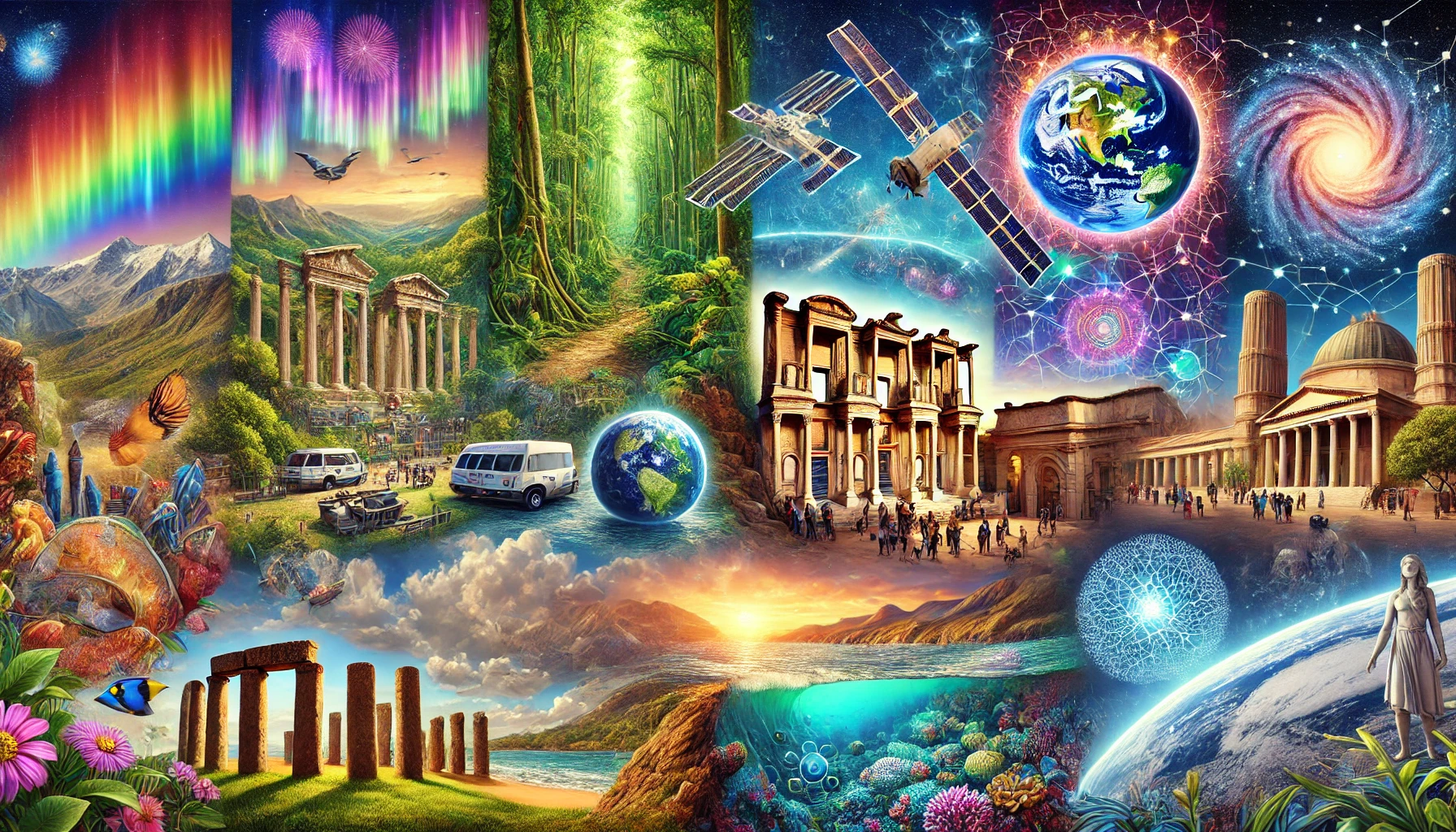10 of the World’s Most Amazing Things Every Student Should Know About
Whether you’re in high school or college, the world is full of wonders that spark curiosity and inspire adventure. Here’s a list of some of the most amazing things around the globe that students would find exciting, from scientific marvels to natural wonders. Let’s explore:
—
1. The Amazon Rainforest
The Amazon is the largest rainforest in the world, spanning over 5.5 million square kilometers across nine countries. Known as the “lungs of the Earth,” it produces about 20% of the world’s oxygen. With thousands of unique plant and animal species, it’s a biodiversity hotspot that students passionate about environmental science and ecology would find mesmerizing.
2. The Northern Lights (Aurora Borealis)
A natural light display in polar regions, the Northern Lights are created when solar winds interact with the Earth’s magnetic field, resulting in colorful displays in the night sky. Ideal spots to view them include Norway, Iceland, Canada, and Alaska. It’s a thrilling experience for anyone interested in astronomy and atmospheric science.
3. The International Space Station (ISS)
The ISS orbits Earth approximately 16 times a day, allowing astronauts to witness 16 sunrises and sunsets daily. It’s a unique space laboratory where astronauts from around the world conduct experiments that can’t be performed on Earth, making it an amazing achievement in international cooperation and space science.
4. The Grand Canyon
One of the most famous landmarks in the United States, the Grand Canyon is over 446 kilometers long and was formed by the Colorado River cutting through layers of rock over millions of years. It offers students of geology an incredible example of Earth’s natural history.
5. The Great Barrier Reef
Located in Australia, it’s the largest coral reef system in the world, stretching over 2,300 kilometers. The reef is home to thousands of species of fish, corals, and other marine life. For students interested in marine biology and conservation, the reef provides insights into complex underwater ecosystems and the impacts of climate change.
6. Stonehenge
This mysterious stone structure in England dates back to around 3000 BC and has intrigued historians and archaeologists for centuries. It’s still uncertain how and why ancient people built Stonehenge, making it a perfect study topic for those interested in archaeology, history, and ancient cultures.
7. The Internet
Though not a physical location, the internet is one of the most incredible achievements of human innovation, connecting billions of people worldwide. From educational resources to entertainment and social networking, it has revolutionized the way students learn, interact, and share knowledge.
8. The Library of Alexandria (Ancient)
Although no longer in existence, the ancient Library of Alexandria in Egypt is legendary, as it was once the largest and most significant library of the ancient world. It held vast collections of knowledge from different cultures, and its history inspires students of all ages to appreciate the value of libraries and the preservation of knowledge.
9. Mount Everest
The tallest peak on Earth, Mount Everest stands at 8,848 meters above sea level and is a major challenge for climbers worldwide. For students interested in geology, biology, and even psychology, studying the harsh conditions and the human drive to reach the summit offers many lessons on resilience and the physical limits of the human body.
10. The Human Brain
Finally, the human brain itself is one of the most complex and amazing things known to science. It processes massive amounts of information, controls bodily functions, and enables us to think and create. Neuroscientists are still discovering how our brains work, making it a fascinating field of study for any student interested in biology, psychology, or medicine.
—
Why Exploring These Wonders is Important
As students, exploring these amazing things encourages curiosity, creativity, and critical thinking. Whether it’s through books, documentaries, field trips, or hands-on experiences, learning about the world’s wonders can inspire you to ask big questions, pursue innovative careers, and appreciate the beauty and diversity of life on Earth.
So, which of these will you dive into next?
